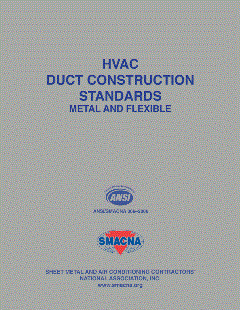The announcement by the Air-Conditioning,
Heating, and Refrigeration Institute, the industry’s main lobbying group,
reverses more than 25 years of supporting a single national efficiency
standard.
U.S. manufacturers
of HVAC equipment said Tuesday they now support regional energy-efficiency standards for
their products.
The announcement by
Air-Conditioning,
Heating, and Refrigeration Institute, the industry’s main lobbying group,
reverses more than 25 years of supporting a single national efficiency
standard. The agreement between the AHRI and seven other groups including the
Alliance to Save Energy and the Natural Resources Defense Council, calls for
the nation to be dividing into three zones: North, South and Southwest, with
different efficiency standards required for units sold in each region.
The agreement also drops
the AHRI’s longstanding support of federal preemption and allows states to set
even higher standards for HVAC systems installed in new homes.
The new standards would
raise the minimum efficiency of residential air-conditioning systems by about 8
percent and furnaces by 13 percent, according to the groups. By 2030, when most
of the nation’s HVAC equipment is expected to be compliant, consumers will save
$13 billion and 3.7 quadrillion Btu of energy, as well eventually as reducing
greenhouse gas emissions by 23 million metric tons annually, they added.
“In addition to saving
significant amounts of energy for the nation - and saving consumers
considerable money - this agreement provides industry with greater certainty in
the marketplace, which enables more investment, enhances global competitiveness,
and preserves jobs,” said AHRI President Stephen Yurek.
The groups said
they would jointly lobby Congress to include the new, more aggressive standards
in any final legislation dealing with climate change issues.
"We believe this
proposal represents a large leap forward in improving our nation's energy
efficiency, while also reducing consumer energy bills and helping to clean our
environment,” said Steven Nadel, executive director of the American Council for
an Energy Efficient Economy, one of the groups that signed the agreement.
“Regional standards are a major step for cost-effective savings and will help
manufacturers meet the very different needs of homes in cold, hot-humid, and
hot-dry climates.”
Other HVAC industry associates
were not so pleased, however. In an e-mail to members, David McIlwaine, the
Heating, Airconditioning and Refrigeration Distributors International’s current
president, said the group declined to sign the agreement and regretted AHRI’s
decision to “to
negotiate and finalize such a significant agreement in isolation from the rest
of the industry.”
McIlwaine did note that
HARDI believed the AHRI’s actions were done in the best interests of the
industry.
In a statement, Air
Conditioning Contractors of America Chairman Stan Johnson and President and CEO Paul Stalknecht said their group was withholding
its verdict on the agreement until members were polled. Like HARDI, the ACCA
said it chose not to endorse the proposal.
"Once our member contractors
have had time to analyze and respond to this proposal in accord with the
realities of their businesses, ACCA will determine the path
forward that best meets the needs of the contractor community, our customers,
our economy, and our environment," ACCA officials said.
Copyright ©2025. All Rights Reserved BNP Media.
Design, CMS, Hosting & Web Development :: ePublishing







